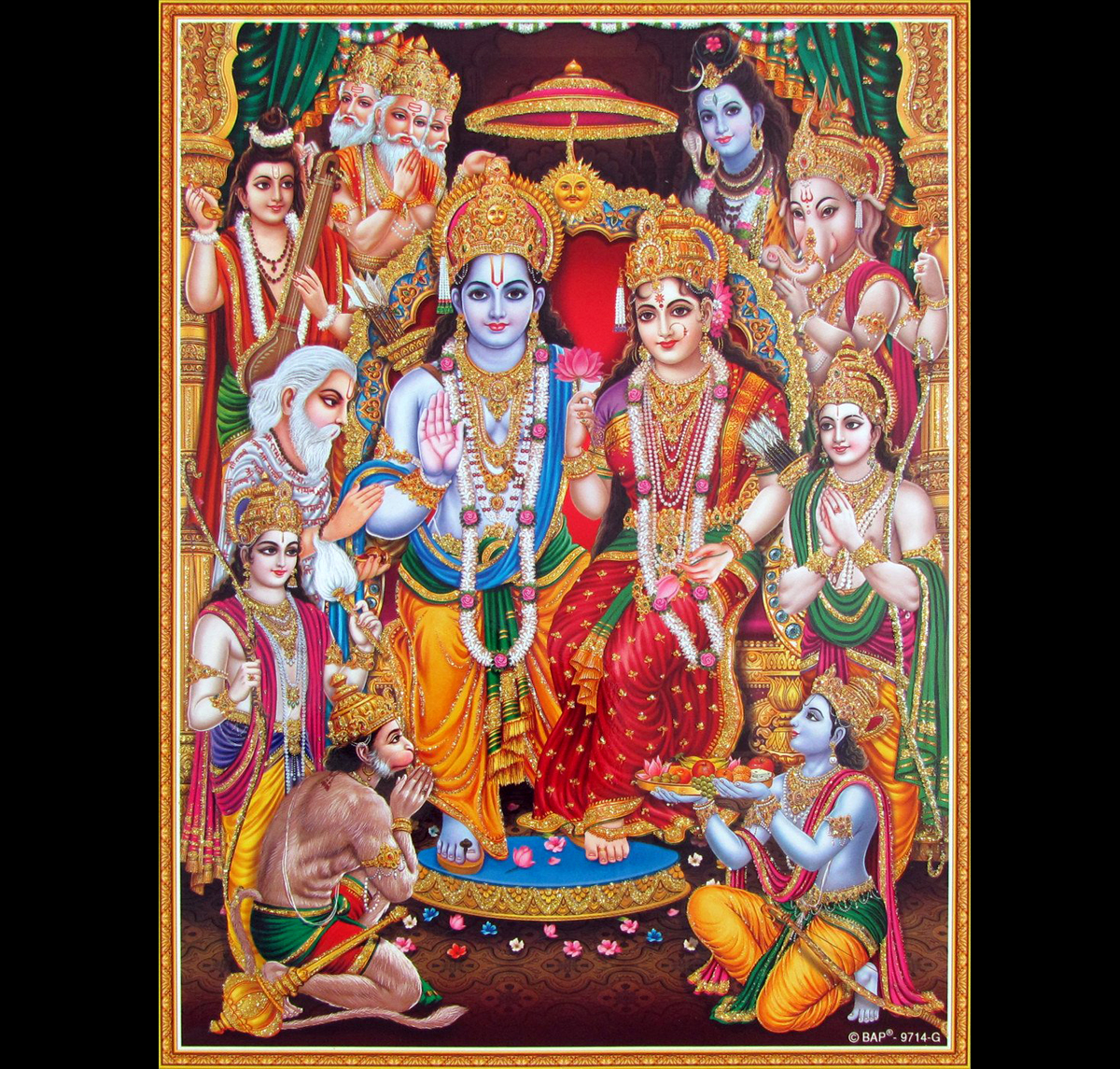Swami Ram Swarup, Yogacharya Several divine qualities in respect of Bhagwan Ram have already been described in my previous two articles. Valmikiji, in his Ramayan, has quoted Sri Ram’s qualities, at every step of his narration. Actually, Brahmaji requested Valmikiji to give the description of Sri Ram’s life sketch, which was told to him by Naradji. Brahmaji added that until the time the mountains and seas would exist over this earth, the story of Sri Ram shall propagate in the world. So, the main motto of writing Valmiki Ramayan by Rishi Valmikiji was to describe the divine qualities of Bhagwan Ram, which he has done effectively. In Yudha Kaandam, Sarg 60 of Valmiki Ramayan, it is mentioned that when Ravanna was killed by Sri Ram then Sri Ram told Vibheeshan to do the cremation of his brother Ravanna. Vibheeshan refused to do cremation stating that he was irreligious, cruel, liar, indulged in adultery etc. On this, Sri Ram, Supreme amongst virtuous dignitaries, told Vibheeshan that though Ravanna was sinner and liar even then he was mighty, glorious, brave and was never defeated in war. As long as a man remains alive, till such time, enmity also remains with him but after his death, the enmity ends. Sri Ram added that “Your brother has died and our motto has also been achieved. So, at this moment, just as Ravanna was your brother, so is he mine. Therefore, now you perform his cremation with all respect.” So, this was idealism and kindness of Sri Ram. After the cremation of Ravanna, Sri Ram asked Vibheeshan to arrange journey from Lanka to Ayodhya. On this, Vibheeshan told Sri Ram to stay for one more day in Lanka because he had Pushpak aeroplane which would carry Sri Ram comfortably to Ayodhya. Yet Sri Ram answered to Vibheeshan that “You bring the Pushpak aeroplane here. Because when our whole target has been achieved and the period of my exile has ended then it is not possible to retain me here.” When Sri Ram uttered the said words, Vibheeshan immediately brought the Pushpak Vimaan there. When all the dignitaries along with Sri Ram, Mata Sita and Laxman boarded the plane then by the order of Sri Ram, the best aeroplane of Kuber, took flight in the sky. While flying in the sky in the aeroplane, Sri Ram told Sitaji that “Oh Sita, see Godavari river.! On the banks of this river, ashram of Rishi Agastya and Sharbhang Rishi is being seen. Hey Sitey! See the earth on which several ashrams of tapasvis are situated. Here, Kulpati Rishi Atree also lives, who is glorious like sun and agni (fire). Here only, you met the tapasvani Ansuiya. Hey Sitey! See the river Saryu, on the banks of which the Kings born in Ikshavakuvansh did several Yajyen.” These shlokas are proof that several Rishis lived on the earth. They used to do daily Yajyen with ved mantras, study of Vedas and practice of Ashtang Yog philosophy. In Yajurved mantra 3/5 also, it is mentioned that this earth is “Devyajani” i.e. where the learned of Vedas daily perform Yajyen. After completion of fourteen years of exile, Sri Ram reached the Ashram of Rishi Bharadwaj and traditionally made obeisance to the Rishi. Bharadwajji asked Sri Ram to stay that day in Ashram and leave for Ayodhya the next day. Sri Ram pleasantly accepted the order of Rishi Bharadwaj and stayed there. You see, where Vibheeshan requested Sri Ram to make halt of one day in Lanka but Sri Ram refused to stay in palace but when Rishi Bharadwajji asked Sri Ram to stay with him for one night in Ashram in jungle, Sri Ram happily accepted. This was the love, respect and services towards Rishis exhibited by Sri Ram which is not being seen nowadays. It was the pious effect of vedicsanskriti over Sri Ram. On listening about the arrival of Sri Ram, Bharat, who was the monarch at the time, ordered Shatrughan to decorate the Yajshalas etc. which Shatrughanji did very well. Again here, we must pay our attention on the importance of vedic Yajyen. That is why, it is said that India is the land of Rishi-Munis, who used to perform daily Yajyen. Due to the blessings of Rishi-Munis and the pious effect of the daily Yajyen performed by entire public, Rishi Valmiki ji has told in Sarg 4, Balkand that in Ayodhya, there was no poverty, no person was suffering from vices like sensuality, anger, greed, pride, ego etc. In the end, Rishi Valmikji wrote in Valmiki Ramayan that in the kingdom of Sri Ram, there was no widow, no fear of snakes and diseases, people did not suffer grief, there were timely rains, public never told lies etc.
Trending Now
E-Paper


